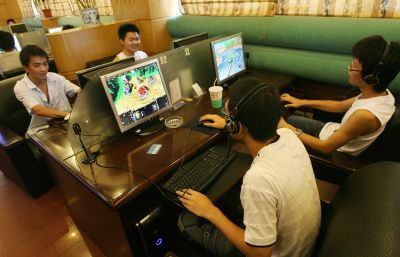China's online population swells to 384 million:

Your support helps us to tell the story
From reproductive rights to climate change to Big Tech, The Independent is on the ground when the story is developing. Whether it's investigating the financials of Elon Musk's pro-Trump PAC or producing our latest documentary, 'The A Word', which shines a light on the American women fighting for reproductive rights, we know how important it is to parse out the facts from the messaging.
At such a critical moment in US history, we need reporters on the ground. Your donation allows us to keep sending journalists to speak to both sides of the story.
The Independent is trusted by Americans across the entire political spectrum. And unlike many other quality news outlets, we choose not to lock Americans out of our reporting and analysis with paywalls. We believe quality journalism should be available to everyone, paid for by those who can afford it.
Your support makes all the difference.The number of Internet users in China, already the largest in the world, rose to 384 million by the end of 2009, a government-linked industry body said Friday.
The online population in the world's most populous nation increased by 28.9 percent last year from the end of 2008, the China Internet Network Information Centre (CNNIC) said in a report published on its website.
Users accessing the Internet with mobile phones jumped by 120 million last year to 233 million, with the fast expansion of the country's third-generation (3G) network, allowing high-speed transmission of images and video, it said.
The report added that Chinese web users are most interested in music, news and search engine services.
China's spiralling online population has turned the Internet into a forum for citizens to express their opinions in a way rarely seen in a country where the traditional media is under strict government control.
The growing strength and influence of the web population has prompted concern in Beijing about the Internet's potential as a tool for generating social unrest, and authorities have stepped up surveillance in recent years.
The government blocks web content that it deems politically sensitive in a vast system dubbed the "Great Firewall of China".
This week, Internet giant Google said it was considering shutting down its google.cn search engine and ending its operations in China altogether over a series of cyber attacks believed to have originated in the Asian nation.
It also said it was no longer willing to filter its search results, as demanded by Chinese government censors.
Join our commenting forum
Join thought-provoking conversations, follow other Independent readers and see their replies
Comments